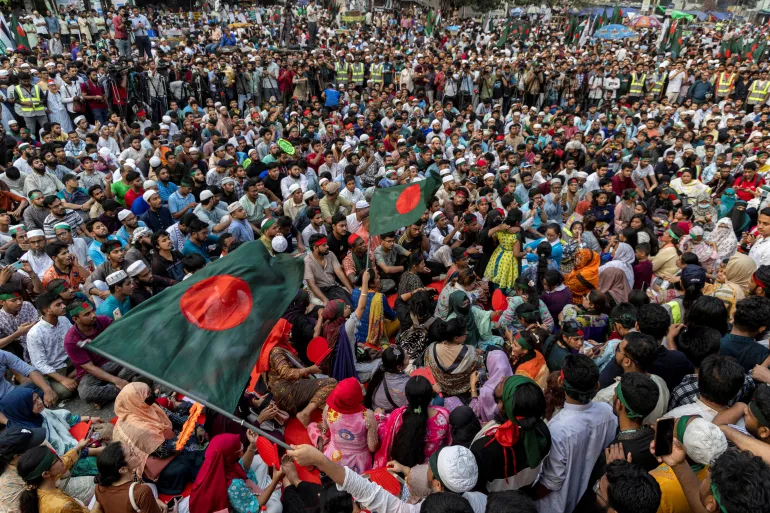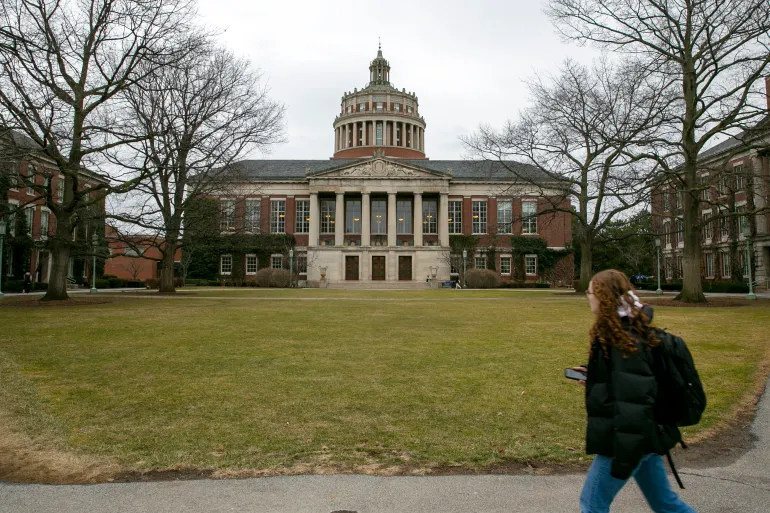On May 11, 2025,Bangladesh’s interim government, led by Nobel Peace Prize laureate Muhammad Yunus, has officially banned all activities of the Awami League, the party of ousted former Prime Minister Sheikh Hasina. The announcement, made on Sunday, cited the party’s alleged involvement in deadly crackdowns during mass protests last year, which led to the deaths of hundreds of demonstrators. The move marks a dramatic escalation in the political transformation of Bangladesh since Hasina’s removal from office in August 2024.
The ban was enacted under the Anti-Terrorism Act, which the interim government claims grants it the legal authority to halt the operations of any political party accused of violent or subversive activities. In a statement released by the Ministry of Home Affairs, the government said the Awami League had “organized and armed groups that engaged in coordinated violence against unarmed citizens,” particularly during the July–August 2024 protests, when demonstrators demanded reform of the quota system for public sector jobs.
“These actions were not isolated or rogue,” the statement read. “They were systematic and coordinated at the highest levels of the party leadership.”
The protests, which initially began with university students and unemployed youth, quickly grew into a nationwide uprising against the perceived corruption and authoritarianism of Hasina’s regime. Following weeks of unrest and rising civilian casualties, the military intervened in late August 2024, forcing Hasina to step down. A transitional government led by Yunus was installed with a mandate to restore democratic order and prosecute those responsible for state violence.
In a separate legal maneuver last month, the government amended the International Crimes Tribunal (ICT) Act to allow for the prosecution of political parties as collective entities, rather than only individuals. This change cleared the way for the tribunal to bring charges against the Awami League as an organization, not just specific leaders. The Home Ministry emphasized that the ban would remain in place until the ICT completes its investigation and potential trials.
Awami League officials swiftly condemned the ban, calling it politically motivated and illegitimate. In a social media post from the party’s official account, a statement read, “All decisions of the illegal government are illegal. This is not justice — this is revenge.” The party has vowed to resist what it describes as a campaign to dismantle Bangladesh’s largest and most established political force.
Hasina herself, who has remained largely out of public view since her ouster, has not commented directly on the ban. Her close aides, however, have accused the interim government of attempting to “erase history” and “silence the voice of millions of Awami League supporters.”
The international community has reacted cautiously. While many Western governments have praised the Yunus-led government for restoring order and pledging transparency, human rights organizations have urged due process and warned against political purges under the guise of legal reform. Amnesty International issued a brief statement, saying, “All political bans must be subject to judicial scrutiny, and accountability must not become a tool for authoritarianism under another name.”
The political future of Bangladesh remains uncertain. The interim government has stated that general elections will be held once the tribunal completes its trials and new electoral regulations are in place. However, critics argue that the removal of the Awami League from the political landscape undermines the promise of inclusive democracy.
Meanwhile, the tribunal’s proceedings are expected to be lengthy. Legal analysts believe that trials involving charges of organized violence and crimes against humanity could take months, if not years, to conclude. Until then, the once-dominant Awami League will remain sidelined — a historic fall for a party that governed Bangladesh for most of the last two decades.
The streets of Dhaka remain tense, with both supporters and opponents of the ban staging rallies. Security has been heightened around key government buildings and Awami League offices, most of which have now been sealed. As the country moves forward under a transitional framework, the fate of one of South Asia’s oldest political movements now hangs in legal and political limbo.
Source; Al Jazeera



